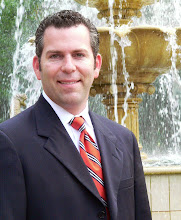
"What took you so long?" joked Virginia's 71st Governor, "Landslide" Bob McDonnell as he took the stage to honor candidate Scott Rigell on his 50th birthday. Partisans from Virginia's 2nd Congressional District crowded the Cavalier on the hill; majestic landmark to old Virginia Beach money. A swell of enthusiasm and laughter greeted the good natured joking between two old friends and new allies. "No joke, I've been trying to get this guy to run since 1994."
The offhanded comment revealed a backstory, no doubt present in every campaign, of how the players got to center stage of the political drama. Watching on in the crowd was a grey-haired veteran both of the automotive business and the political game, the Hon. Conoly Phillips. He smiled, perhaps remembering how he'd met Rigell as a young, promising MBA student at Regent University in 1987. Truth was, he gave him his start in the local car world, where Rigell worked for about five years until he was able to purchase his own dealership.

And now Mr. Phillips serves as chairman of the board for Regent University, that aims to train "Christian leaders to change the world." He has to feel good, seeing a governor, and perhaps a future Congressman, espousing values he holds closely, sharing a stage and electrifying the swelling crowd. But perhaps most importantly, Shannon Kendrick--African American Regent government staff, and Juan Gonzalez- local Latino pastor and community activist, as well as Hunter Hangar, current Regent second year law student, are amidst the crowd, cheering on the candidate as well. This candidate brought together a community; the young, the religious right, a significant Hispanic minority (meeting campaign manager JAson Miyares' mother was a thrill!)

For a moment, on Memorial Day weekend, at Scott Rigell's 50th Birthday party, as his third generation Marine son Justus stood to thank the crowd, I took in the joy of being an American. Not the thrill of being right, but of having a choice. Of families that can better themselves through education; achieve the "American Dream" of earning probably more money than they ever imagined. Regardless of the election results, Scott said it "This is, without a doubt, the best birthday I've ever had!"






